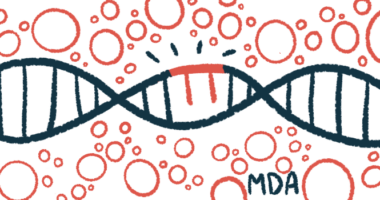Pivotal Trial of DMD Gene Therapy SRP-9001 Launches Globally

Note: This story was updated Oct. 8, 2021, to clarify that Sarepta did not confirm previously announced plans to enroll 75 boys between the ages of 4 and 7 in the EMBARK trial in its latest announcement.
Sarepta Therapeutics and Roche have announced the launch of EMBARK, a pivotal clinical trial testing the investigational gene therapy SRP-9001 in boys with Duchenne muscular dystrophy (DMD).
In accordance with development plans announced in November 2020, the trial was set to enroll approximately 75 boys between the ages of 4 and 7, but Sarepta did not confirm trial details in its latest announcement. Enrollment will take place in the U.S., Europe, and Asia; specific study sites have not yet been released.
“We are delighted to announce the initiation of EMBARK, representing the first pivotal double-blind gene therapy trial in Duchenne which will be initiated in US, Europe and Asia,” Doug Ingram, Sarepta’s president and CEO, said in a press release.
In addition, Sarepta also recently announced plans to begin part B of the Phase 2 MOMENTUM clinical trial (NCT04004065), which is testing the company’s investigational treatment SRP-5051.
DMD is caused by mutations in the gene that provides instructions for making dystrophin, a protein that is important for muscle function. SRP-9001 (rAAVrh74.MHCK7.micro-dystrophin) uses an engineered viral vector to deliver a gene encoding micro-dystrophin to muscle cells. As its name suggests, micro-dystrophin is a shortened, though functional, version of the dystrophin protein.
Sarepta and Roche are currently sponsoring an ongoing Phase 1 trial called ENDEAVOR (NCT04626674) testing the safety and effectiveness of SRP-9001 in boys with DMD.
Earlier this year, the companies reported data from the first 11 participants in ENDEAVOR, which demonstrated that the therapy led to robust expression of micro-dystrophin in muscle tissue at about three months after treatment.
The companies are now launching EMBARK to further explore the safety and effectiveness of SRP-9001. Its main goal will be to assess how the gene therapy affects scores on the North Star Ambulatory Assessment, a measure of motor abilities in DMD patients who are able to walk.
“The initiation of EMBARK represents the culmination of enormous effort and success from a research, development and manufacturing perspective and is an extraordinarily important moment for the patient community and a leap forward in our effort to change the course of Duchenne,” Ingram said.
“In addition to our team, our investigators and the families who have participated in our trials, I want to thank the professionals within FDA’s Office of Tissues and Advanced Therapies for their collaborative guidance and insight as we finalized our EMBARK study and advance the SRP-9001 program,” he added.
In about 13% of cases, DMD is caused by a mutation in a specific part of the gene encoding dystrophin called exon 51. SRP-5051 is designed to allow the cellular protein-making machinery to “skip over” this portion of the gene, leading to the production of a shortened but still functional dystrophin protein.
Results from Part A of MOMENTUM, released earlier this year, showed that monthly treatment with SRP-5051 for three months led to eight times more dystrophin production compared to weekly treatment with Exondys 51 (eteplirsen), an approved exon 51-skipping therapy made by Sarepta, for six months.
Part B of the study is planning to enroll between 20 and 40 DMD patients, age 7 to 21, who have mutations amenable to exon 51-skipping therapies and have never before been given SRP-5051. Patients previously dosed in part A, or in prior clinical trials of SRP-5051, may also be eligible for participation in Part B.
The study is open to both ambulatory and nonambulatory patients, and will take place at sites in the U.S., Canada, Australia, and the European Union.
SRP-5051 uses a proprietary chemistry platform developed by Sarepta, a specific type of small RNA-like molecule called a peptide phosphorodiamidate morpholino oligomer (PPMO).
“If proven safe and as efficacious as our initial data suggest it may be, SRP-5051 could be the first in a host of transformative therapies from our next-generation PPMO platform to treat and improve the lives of children living with Duchenne muscular dystrophy,” Ingram said in a separate press release.








